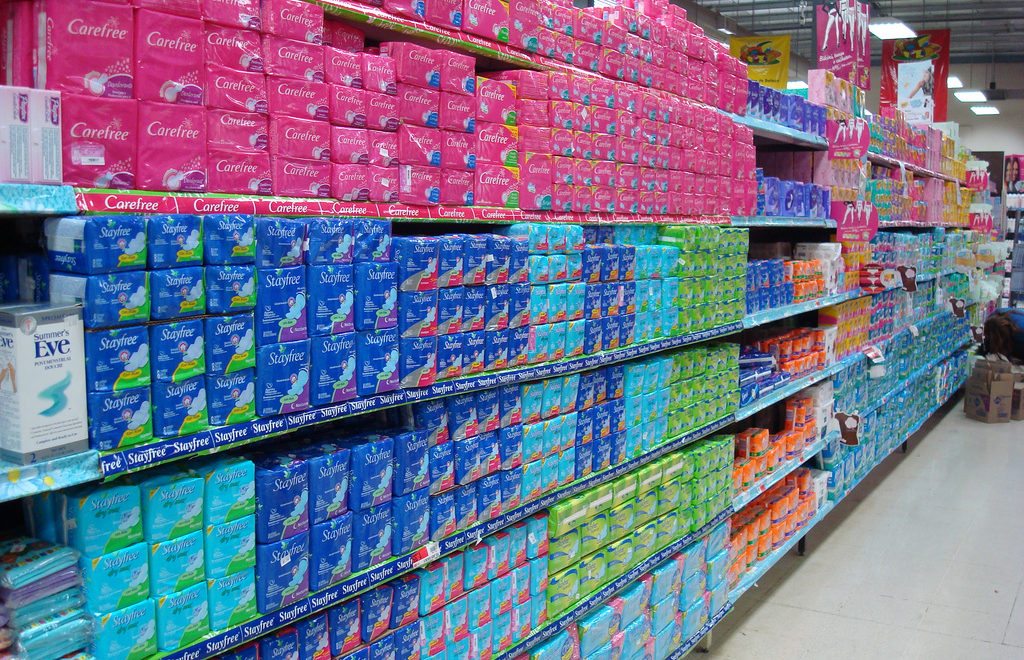1. Women in Arizona join state representative to win extra pads for female inmates
Twelve pads per month and zero tampons. Until a month ago that was the number of sanitary napkins offered to women in Arizona state prisons. If you’ve ever had a period, you know that’s not enough.
In February, women who were formerly incarcerated joined Arizona state representative Athena Salman to introduce a bill that would provide an unlimited supply of free pads and tampons to female inmates. When the bill was stalled by a member of the all-male hearing committee, women across the state bombarded his office with menstrual products and letters expressing support for the bill.
Days after the #LetItFlow campaign started, the Arizona Department of Corrections announced it would immediately raise the minimum number of pads from 12 to 36. While this updated policy alleviates some of the economic burden from female inmates, Salman says she is making sure it is implemented and will keep pushing for unlimited female hygiene products. Ultimately this campaign is just one step in ensuring women have safe access to be healthy, no matter where they’re staying.
2. African leaders sign a historic continental trade deal
It’s a big deal. On Wednesday 44 African leaders signed the largest trade agreement since the World Trade Organization was founded. As its name suggests, the African Continental Free Trade Agreement (AfCFTA) would create a single market across Africa and boost intra-continental trade. Historically, colonialism redirected intra-African trade routes towards the U.S. and European countries.
With hopes of bringing together more than one billion people and a total GDP of more than $2 trillion, the AfCFTA is expected to improve African economies and make the continent more competitive globally.
While the deal promises long-term economic gains, 10 countries are opting out. Among them is Nigeria, the country with the largest economy and population in Africa. Nigerian president Muhammadu Buhari withdrew from negotiations at the last minute, expressing concern that the current agreement would undermine local manufacturers and businesses. He has since set up his own committee to discuss AfCFTA over the next two weeks.
The creation of an Africa-wide free-trade zone is an ambitious task. As negotiations continue, countries will be ironing out details in their own contexts.
3. UNHCR Young Woman of the Year belly dances for LGBTQ rights
Activist by day, belly dancer by night. These are just two ways Shrouk El-Attar, a person of many talents, spends her time.
In 2007 El-Attar and her family left their home in Egypt to seek asylum in Britain. After an arduous process she eventually received asylum status because she was queer. Though homosexuality isn’t outlawed in Egypt, queer folks have historically been criminalized by a ban on “debauchery”.
As a form of protesting her country’s discrimination against queer people, the 25-year-old belly dances in drag. She also donates money from her performances towards legal fees for Egyptians serving time in prison for being queer.
Besides raising awareness about LGBT+ rights, El-Attar also campaigns for equal access to higher education for asylees. Her involvement with this work stems from her own experiences: despite having been two years ahead of her class back home, she was unable to enter college because of hefty fees for international students.
This month El-Attar was named Young Woman of the Year by the UN Refugee Agency.









